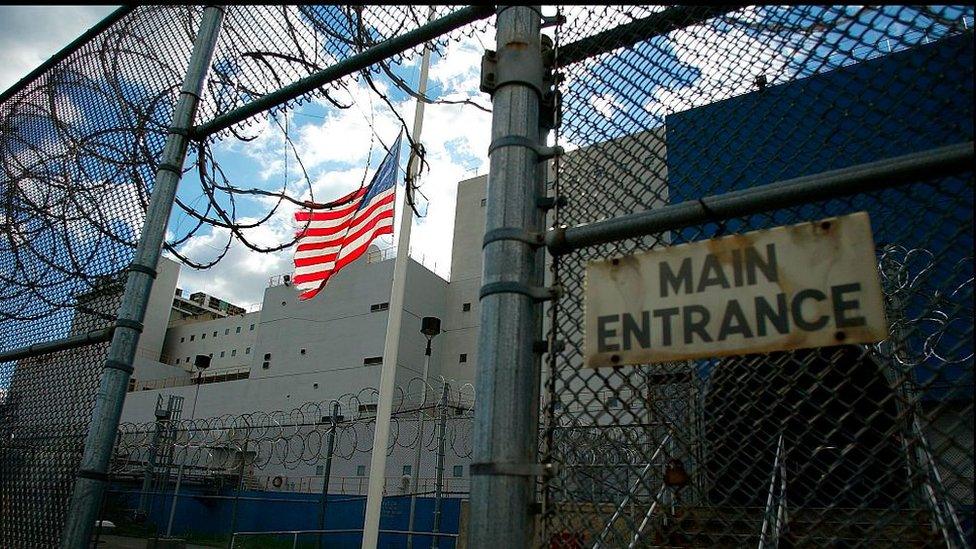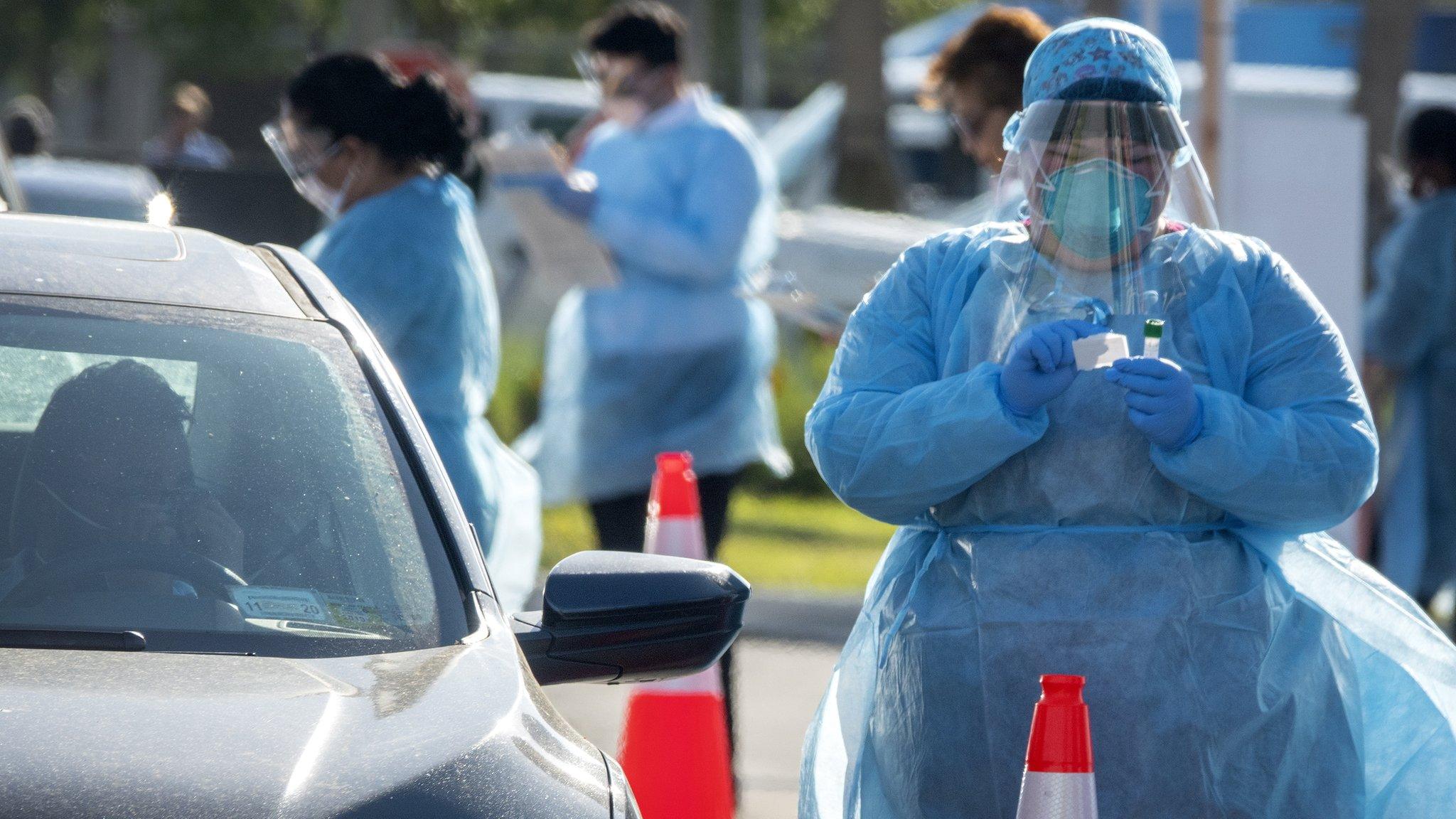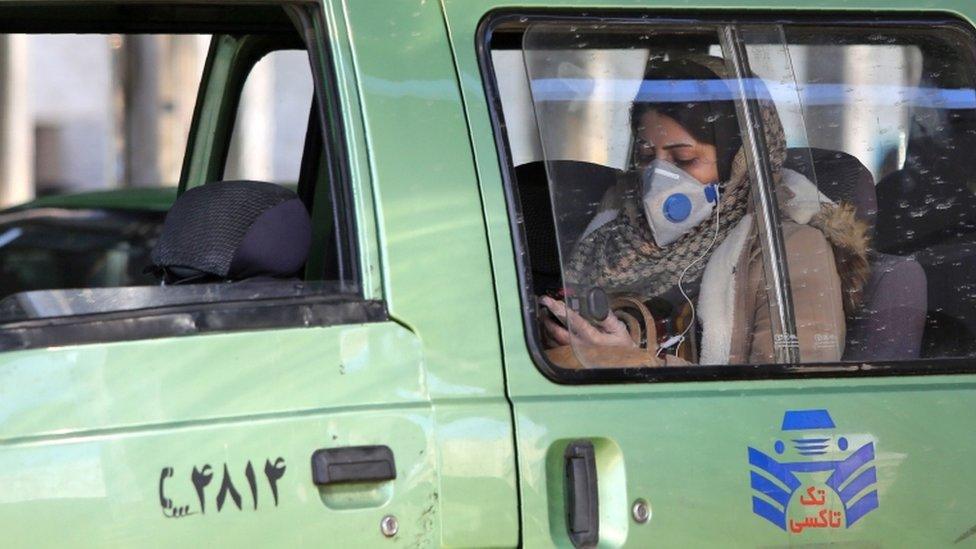US jails begin releasing prisoners to stem Covid-19 infections
- Published

New York is to release prisoners who are most vulnerable to coronavirus infection
US jails are to let out inmates as cases of coronavirus infections are being reported in prisons.
New York City is releasing "vulnerable" prisoners, the mayor said on Wednesday, days after Los Angeles and Cleveland freed hundreds of inmates.
Prison reform advocates say those in jail are at higher risk of catching and passing on Covid-19.
There have been more than 9,400 cases of Covid-19 and 152 deaths in the US so far, according to estimates.
Globally there are some 220,000 confirmed cases and over 8,800 deaths.
What happened in New York City?
New York City Mayor Bill de Blasio said on Wednesday that city officials will this week identify individuals for release, including people who were arrested for minor crimes and those most vulnerable to infection due to underlying health problems.
His announcement came hours after a guard and a prisoner tested positive for coronavirus at Rikers Island prison, where disgraced former Hollywood producer Harvey Weinstein, 68, is a high-profile inmate.
Weinstein will be moved to a different state prison, an official said on Wednesday.
Other New York prisons, such as Sing Sing, have had inmates test positive for coronavirus and one employee for the state's corrections department has died from it, external.
What have other US jurisdictions done?
The Los Angeles County Sheriff's Department reduced its inmate population by 600 in the last two weeks, officials said on Tuesday.
"Our population within our jails is a vulnerable population just by who they are, where they are located, so we're protecting that population from potential exposure," Los Angeles Sheriff Alex Villanueva told reporters earlier this week.
The LA County jail system is the largest prison system in the world with an average population of around 22,000 prisoners.
Mr Villaneuva disclosed that arrests in the county are also down, from an average of 300 per weekend to only 60 in mid-March.


A SIMPLE GUIDE: What are the symptoms?
YOUR THIRD HAND: How do you clean your smartphone?
BORED KIDS: Should you let your children play with others?
GETTING READY: How prepared is the US?
DOING GOOD: Kind Canadians start 'caremongering' trend

Cuyahoga County, Ohio, where the city of Cleveland is located, has also released hundreds of prisoners due to coronavirus concerns.
Judges held emergency hearings through the weekend to work out plea deals and other agreements to allow prisoners to be released early or without serving time.
Several states from New York to California are now banning in-person visitors. A ban on visits led to a deadly prison riot in Italy last week.
Federal agencies will postpone most arrests and deportations during the coronavirus crisis.
Coronavirus: Trump blames media for virus spread
What is the danger to prisoners?
Reform campaigners say prisoners face unique risks, due to a lack of hygiene in overcrowded cells and hallways.
Handcuffed people cannot cover their mouths when they cough or sneeze, sinks often lack soap and hand sanitiser is considered contraband due to its alcohol content.
Iran has already released 85,000 people, including political prisoners, in an effort to combat the pandemic.
The US locks up more of its citizens per capita than any other country, with an estimated 2.3 million people behind bars in federal, state and local prisons.
Some high profile convicts have argued for early release over coronavirus fears.
They include President Trump's former lawyer Michael Cohen, 53, financial fraudster Bernie Madoff, 81, and Gilberto Rodriguez-Orejuela, a notorious Colombian drug lord.
- Published19 March 2020

- Published17 March 2020

- Published3 March 2020
